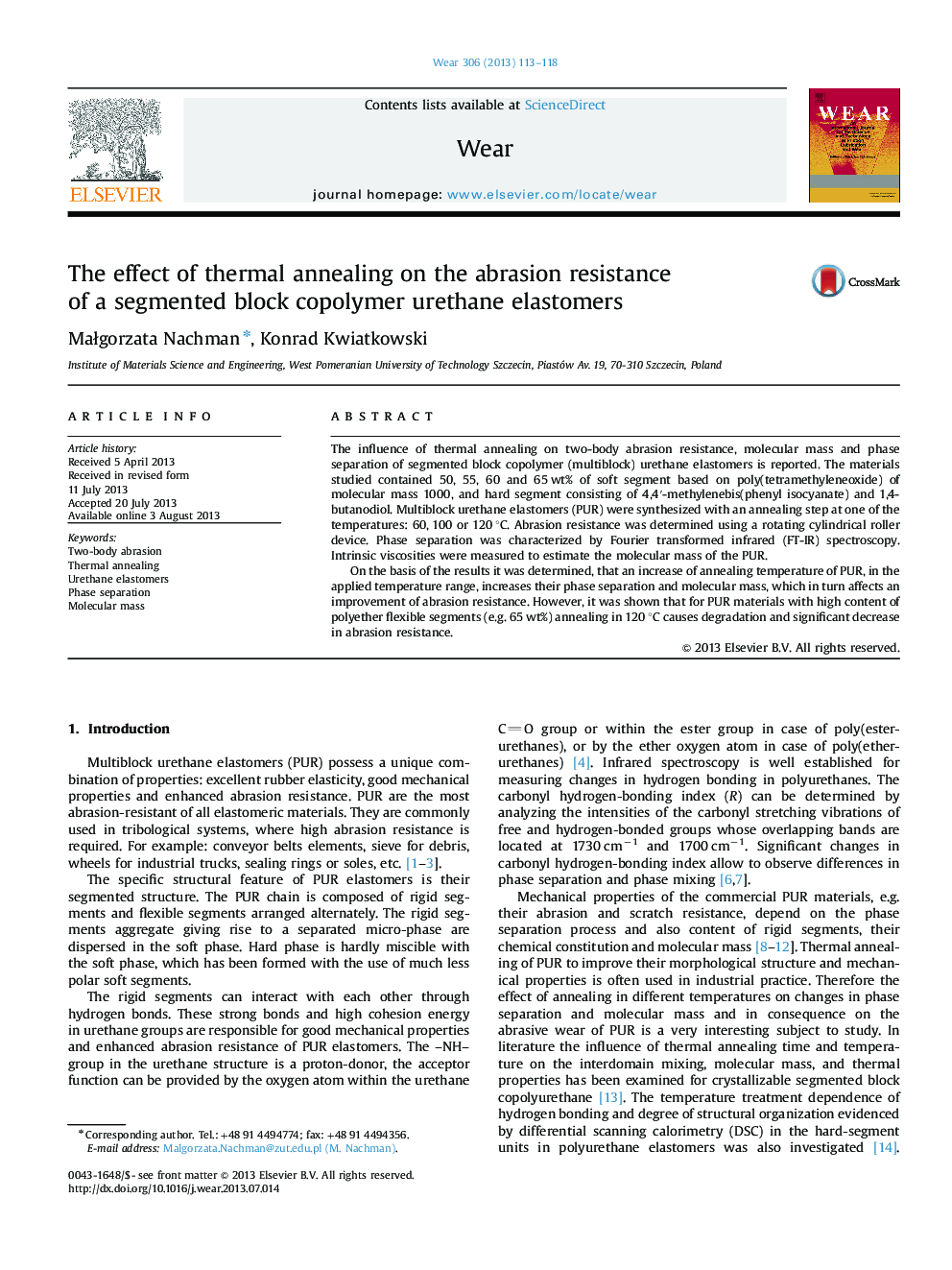| کد مقاله | کد نشریه | سال انتشار | مقاله انگلیسی | نسخه تمام متن |
|---|---|---|---|---|
| 617607 | 1454996 | 2013 | 6 صفحه PDF | دانلود رایگان |

• The effect of annealing temperature on abrasion resistance of urethane elastomers (PUR) has been analyzed.
• The thermal treatment of ether containing linear PURs induces increase in both molecular mass and the number of hydrogen bonds in hard phase.
• The abrasion resistance level of urethane elastomers is determined by molecular mass.
• The choice of annealing temperature of elastomers should be always correlated with the content of rigid and flexible segments in copolymer and thermal characteristic.
The influence of thermal annealing on two-body abrasion resistance, molecular mass and phase separation of segmented block copolymer (multiblock) urethane elastomers is reported. The materials studied contained 50, 55, 60 and 65 wt% of soft segment based on poly(tetramethyleneoxide) of molecular mass 1000, and hard segment consisting of 4,4′-methylenebis(phenyl isocyanate) and 1,4-butanodiol. Multiblock urethane elastomers (PUR) were synthesized with an annealing step at one of the temperatures: 60, 100 or 120 °C. Abrasion resistance was determined using a rotating cylindrical roller device. Phase separation was characterized by Fourier transformed infrared (FT-IR) spectroscopy. Intrinsic viscosities were measured to estimate the molecular mass of the PUR.On the basis of the results it was determined, that an increase of annealing temperature of PUR, in the applied temperature range, increases their phase separation and molecular mass, which in turn affects an improvement of abrasion resistance. However, it was shown that for PUR materials with high content of polyether flexible segments (e.g. 65 wt%) annealing in 120 °C causes degradation and significant decrease in abrasion resistance.
Journal: Wear - Volume 306, Issues 1–2, 30 August 2013, Pages 113–118